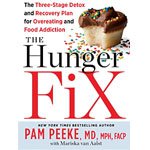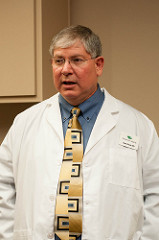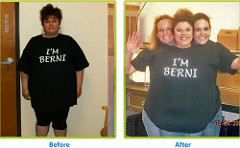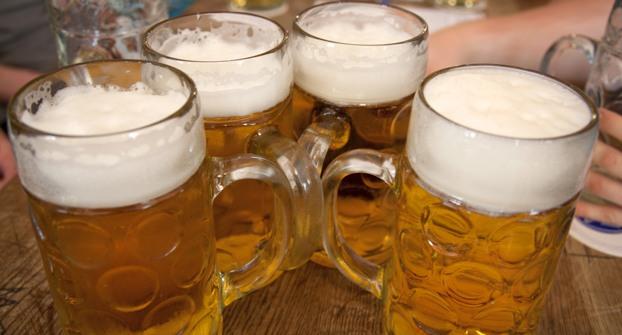More from Prevention: Dr. Peeke's Tips For Beating Stress Eating
Emotional stress is always the demon that drives us to seek solace in "false fixes" like food, Dr. Peeke says, but we set the bar low on what pushes us over the edge. "The greatest stresses of life," she says, "come from unmet expectations." Say you planned drinks with a friend, but she got distracted by her own problems and forgot to meet you. Now you're hurt, and your knee-jerk reaction to this minor and unintended slight is to self-destruct with a doughnut. "Gee, sorry, that's huge," says Dr. Peeke, with more than a trace of sarcasm, "but that's the way it came down. Humans are fallible. Your whole day fell apart, so immediately you feel you have to go out and numb the pain, and that may throw you into some really bad places." We need to learn these two tenets of survival in an ever-changing world: Adapt and adjust "without resorting to self-destruction," she says. "We have to woman up—learn to be like athletes in the backcourt who can get ready to run to the right and left, backward and forward, the 'I'm ready for you' kind of thing."
Though she prefers to deflect the spotlight from her personal life, when prodded, Dr. Peeke will talk about her experience with using food to fight feelings as a teen growing up in San Francisco. One of five kids, she was expected to care for a younger sister who became ill. A tomboy who was all about the outdoors, basketball, and swimming but also loved ballet, the young Dr. Peeke found herself stuck indoors with her sibling. To soothe the rough edges of her sadness, she indulged in books and bags of bridge mix, packing an extra 50 pounds onto her frame. "I was just a kid when I went through that trauma; I didn't know there was a higher level of enlightenment," Dr. Peeke says. "What I was doing"—what many of us do—"was seeking a primal level of comfort when things were challenging."
More from Prevention: Break Your Emotional Eating Cycle
[pagebreak]
Dr. Peeke had her "epiphaME"—her word for the sudden, mind-blowing, life-changing moment—a few years later. While in college at Berkeley and on a date, her pants split. That was it. Determined, she enrolled in a ballet class, and over the next year she danced and danced. And hiked at Lake Tahoe. And surfed. And went Nordic skiing. And dropped the 50, replacing her food addiction with "a hunger to live life to the fullest."
"What made me turn into a healthy lifestyle coach to so many," she says, "is that I have been down that road. I understand that route; I empathize with that route...and I can tell you that it's pretty awesome on the other side." In her own words, Dr. Peeke shares what she's learned.
Biology isn't destiny
Epigenetics—epi meaning "above" or "outside"—is new science, and we're only beginning to understand how it works and what it means for human health. But it's a game changer. It means that you may not be able to alter your genes, but you play a powerful role in how your genes communicate and collaborate with the rest of your mind and body. If you can change certain key choices—your diet, how you handle stress, your physical activity—it's like writing notes in the margin of your genome, and you can flip the switch to support and protect your health. People love the fresh start: "No matter what the past, I can define my destiny right now." And the fact that you can change gene expression—literally alter the script of your life—is so empowering. And I don't have to hear that "it's too late" thing. Because it's not!
Assume the vertical!
Just get off your behind! Find things that are fun to do. Forget the word exercise—dance around like a crazy person, throw a Frisbee to your dog, knock yourself out! People have to get over that idea that if they're not lifting 19,000 pounds or living in a gym, they're not going to get anywhere. That's ridiculous. All activities of daily living count. There's no question that when a woman has been taking better care of herself, she holds her head higher, has a greater sense of what she's all about. Physical activity is the best "healthy fix" because it helps rebuild the brain from addiction and stimulates the release of the brain chemicals serotonin, which calms you down, and dopamine, which gives you reward and pleasure. (Consider these 7 fun dances that bust stress.)
The great outdoors is healing
I love to be in nature. I'm most comfortable in my hiking gear. Here's what it is: no makeup, no mirrors, just you. You are who you are. Nature humbles you in a wonderful way; you realize you're an integral piece of the whole mess out there. At the same time, it calms you; eco-psychology research shows that people are calmer and more peaceful outdoors. When was the last time you walked through a park and said, "That was the worst experience of my life"? The other thing is that nature is nonjudgmental. There's not a single tree that's gonna roll up to you and say, "Hey, you're fat!" And to be clear, I'm asking no one to climb mountains; I'm saying just friggin' take a walk!
Perfection = paralysis
People with addictive personalities see things in black-and-white: "If I screwed up for 1 minute, then I screwed up. Period." I say cut yourself some slack. Use the 80–20 rule—works like a charm. Can you hit it, on average, 80% of the time? You're good. (Get even more tips on how to let go of diet perfection.)

Dr. Pam Peeke's latest book, The Hunger Fix, tackles food addiction with a plan to foil the brain's pleasure hormones. Order your copy today!




